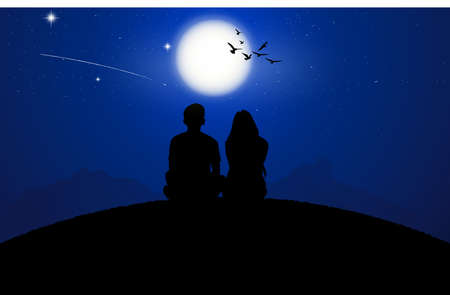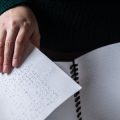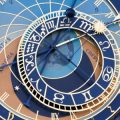Setting the Scene: Stars, Sceptres, and Saucy Playwrights
Welcome to Elizabethan England: a land where ruffs are starched to the heavens, monarchs rule with a glittering sceptre, and everyone with a feathered quill fancies themselves a cosmologist—or at least knows how to read their own horoscope. Picture it: the muddy streets of London thronging with merchants, pickpockets, and the odd astrologer hawking cosmic wisdom for a shilling. Science was but a fledgling chick, magic still strutted about like it owned the place, and astrology? Oh, darling, astrology was so in vogue even Her Majesty Queen Elizabeth herself wouldn’t dare make a royal decree without first consulting her star chart. Theatres brimmed with plays that mixed alchemy with amorous mishaps and wizards who’d give Dumbledore an inferiority complex. In short, this was an era when the boundaries between science, sorcery, and stagecraft were as blurred as last night’s mead-induced memories. So buckle your doublets and prepare for a rollicking ride through the celestial chaos of Elizabethan drama—where logic is optional and spectacle is compulsory.
2. Elizabethan Stargazing: More than Just a Horoscope in the Papers
Forget everything you know about checking your daily horoscope in the Metro while waiting for the Northern line. In Elizabethan England, astrology wasn’t just a quirky column next to “Lost Cat” ads—it was practically government policy and prime time entertainment rolled into one. The stars didn’t just decide if you’d have a good hair day; they were consulted about marriages, wars, and whether your head would stay conveniently attached to your neck.
Now, while today’s Brits may scoff at the idea of Mercury retrograde causing train delays (it’s always signal failure, right?), back then, blaming planetary movements for one’s dodgy decisions was standard practice. Courtiers and playwrights alike peered through their astrolabes—think of them as the Elizabethan version of a Fitbit, but for planetary mischief—in hopes of decoding fate or at least getting out of trouble with a well-timed “The moon made me do it.”
Astrology: Not Just for Nobles and Shady Wizards
Sure, Queen Elizabeth herself had John Dee—a man who could read the stars and probably your mail—on speed dial. But astrology trickled down from the royal court to the average theatre-goer and even those suspiciously lingering by Ye Olde Tavern. If you thought horoscopes only told you when to buy a lottery ticket, think again. Astrology influenced everything from military campaigns to marriage proposals (or refusals) and provided endless inspiration for dramatists looking to spice up their plots.
Stargazing Scenarios in Drama & Daily Life
| Scenario | Astrological Intervention | Outcome (Sometimes Hilarious) |
|---|---|---|
| Court Decisions | “Mars is rising! Time to declare war!” | Everyone blames Mars when things go pear-shaped. |
| Marriage Proposals | “Venus says yes. Saturn says run!” | Unlucky matches blamed on planetary ‘bad vibes.’ |
| Avoiding Execution | “The stars aren’t favourable for beheading today.” | Lucky reprieve—or just another excuse to procrastinate. |
| Theatre Plots | Dramatic star-crossed lovers | More tears in the cheap seats (and higher ticket sales). |
Sceptics Welcome (But Watch Your Head)
Of course, not everyone bought into the celestial hype. Some savvy sceptics tried to poke holes in all this stargazing, but let’s be honest: if you’re living in an era where “witchcraft” is still trending, questioning astrology might get you labelled as a party pooper—or worse, introduce your neck to the axe-man. So, whether you were a die-hard believer or just pretending for social safety, astrology held sway over both stage and state.

3. Witchcraft and Wonders: Magic on the Stage (and Off)
Elizabethan drama was less about subtlety and more about spectacle—especially when it came to magic. In the days before CGI and pyrotechnics, you had to make do with what you had: a suspiciously smoky cauldron, a dash of dubious herbal knowledge, and an actor who could convincingly cackle like your Aunt Mildred after her third gin. Playwrights were absolutely obsessed with spell books that looked like they’d been rescued from the back of a plague doctor’s cupboard, while “magic potions” tended to involve ingredients best left unnamed (but let’s just say if anyone offers you a love potion in Stratford-upon-Avon, politely decline).
Of course, witchcraft wasn’t just for the stage. The Elizabethans were more than happy to believe that their neighbours were up to all sorts of nocturnal nonsense. If your cows stopped producing milk or your bread didn’t rise, clearly someone down the road was hexing you—with nothing but a rusty broomstick and a copy of “Witchcraft for Dummies.” The line between theatre and real life was so blurred that sometimes actors playing witches would have to reassure the audience they weren’t going to turn them into frogs during the interval.
And then there were the fairies. Shakespeare’s “A Midsummer Night’s Dream” made them trendy, but don’t be fooled: these weren’t the gentle, Instagrammable woodland sprites we imagine today. Elizabethan fairies were mischievous little gremlins who enjoyed leading travellers astray and stealing your best socks. On stage, they were the original special effects department, flitting about with bells, sparkly costumes, and enough mischief to make even Titania blush. Who needs modern technology when you can have Puck jump out from behind a bush waving a stick?
In short, whether it was through dodgy potions or fairy-powered chaos, magic in Elizabethan drama perfectly encapsulated an era where science was still figuring things out and audiences desperately wanted to believe in wonders—even if those wonders occasionally smelled suspiciously like last week’s leftovers.
4. Science: The Awkward Relative at the Elizabethan Family Feast
If the Elizabethan stage were a dinner party, astrology and magic would be the dazzling guests everyone wants to sit next to—sashaying in with their crystal balls, velvet cloaks, and an air of mysterious importance. Science, on the other hand, is that cousin who arrives late, slightly dishevelled, clutching a battered notebook and muttering about “empirical evidence” while everyone else is already halfway through their tarot readings.
For playwrights like Shakespeare and Marlowe, science was both an opportunity and a headache—a new-fangled concept awkwardly elbowing its way into a world where horoscopes were hot and alchemy was all the rage. The audience came for the spells; they stayed for the star charts. And as for science? Well, it had to fight for its place between the cauldron and the constellation map.
The Balancing Act: Spells vs. Test Tubes
Elizabethan dramatists weren’t about to let cold logic upstage a good prophecy. Still, with Copernicus whispering from Poland that maybe—just maybe—the Sun didn’t revolve around us, something had to give. Here’s how our playwrights handled their magical-meets-scientific juggling act:
| Astrology & Magic | Science | |
|---|---|---|
| Audience Reaction | Rapturous applause, gasps, occasional fainting | Polite confusion or outright suspicion (“Is this witchcraft in disguise?”) |
| Playwright’s Toolkit | Spells, omens, enchanted daggers | Sundials, questionable anatomy diagrams |
| Dramatic Impact | Mystical plot twists galore | “Eureka!” moments usually cut for time |
| Cultural Street Cred | Like wearing ruffs to a royal ball—utterly fashionable | A bit like showing up in hose and spectacles—niche at best |
The Reluctant Embrace of Reason
No one wanted to admit it, but science was creeping in regardless. Playwrights peppered their scripts with sly references to new discoveries—sometimes as comic relief (because what’s funnier than a man who thinks Saturn is just another planet?), sometimes as a cheeky challenge to accepted wisdom. The trick was never letting science get too big for its boots; after all, if you could summon spirits on stage, why waste time explaining gravity?
The Takeaway: Magic Wins the Popular Vote (for Now)
In short, while magic and astrology basked in limelight and adulation, science remained the earnest outsider—present enough to intrigue but not nearly glamorous enough to headline. But hey, every family feast needs someone to start an argument before dessert.
5. Of Wills and Wizards: Shakespeare, Marlowe, and Dodgy Alchemists
Let’s be honest—if there was a Guinness World Record for cramming astrology, magic, and proto-science into one act, Elizabethan dramatists would’ve nabbed it faster than you can say “abracadabra.” Picture Shakespeare, quill in hand, pondering whether Macbeth’s witches should toss in a pinch of horoscopes with their eye of newt. Because why have one supernatural element when you could have three? The Bard had an uncanny knack for weaving the stars (astrology), sorcery (magic), and the occasional whiff of Renaissance science into his plots, usually with such flair that even modern audiences wonder if he moonlighted as an astrologer or just enjoyed winding people up.
Marlowe: The Drama Llama of the Occult
Christopher Marlowe, the man who made selling your soul look like a perfectly reasonable career move, wasn’t about to be outdone. In “Doctor Faustus,” he threw subtlety out the window, inviting demons to tea and using astrology to foreshadow doom—because nothing says “good drama” like a horoscope gone horribly wrong. His characters swaggered around debating alchemy and necromancy as if they were ordering at Pret a Manger. Marlowe’s world was a place where dabbling in forbidden knowledge was as trendy as wearing ruffs two sizes too big.
Shakespeare’s Sciencey Side Hustle
Back to Will: when he wasn’t making up words or inventing insults (“you starveling, you elf-skin!”), Shakespeare peppered plays like “The Tempest” with enough magical weirdness to make Hogwarts look underfunded. Prospero’s staff-waving antics? Equal parts wizardry and cutting-edge Renaissance science—at least as far as 16th-century Brits were concerned. And let’s not forget those endless references to the stars determining everyone’s fate. Astrology wasn’t just flavour text; it was plot device, character motivation, and daily excuse for bad behaviour all rolled into one.
The Dodgy Alchemist Down the Pub
No discussion would be complete without tipping our hats to the Elizabethan fascination with dodgy alchemists—the spiritual ancestors of those blokes in Camden Market selling miracle crystals. Whether it was turning lead into gold or conjuring spirits between rounds at Ye Olde Tavern, these questionable scientists made cameo appearances in more plays than you could shake a philosopher’s stone at. Sometimes they were comic relief; sometimes they were cautionary tales; always they were proof that scientific “know-how” back then came with a side order of “don’t try this at home.”
So next time you watch an Elizabethan drama and think things are getting weird—just remember: for Shakespeare, Marlowe, and their mates, mixing astrology, magic, and science wasn’t just theatrical flair—it was practically an Olympic sport.
6. Public Perception: Giggling at Sorcerers, Gasping at Planets
If you ever wondered what the Elizabethan crowd made of all this cosmic carry-on, picture a rowdy mob squeezed onto hard wooden benches, clutching their tankards and ready to believe—well, literally anything if it meant a good show. The playhouses were less “temples of culture” and more like the 16th-century version of your local pub quiz night, but with more spells and fewer smartphones.
The Great British Audience: Cynics with Open Minds (and Open Mouths)
On the one hand, you had die-hard believers in astrology, who’d gasp whenever a character pointed at Jupiter and muttered something about fate. On the other, there were folks who’d heckle poor Faustus for being daft enough to sell his soul for some extra homework help. Magic was both feared and mocked—a duality as British as queuing for chips while grumbling about the weather.
Satirical Shenanigans: Witches on Stage, Winks in the Crowd
Dramatists quickly cottoned on that nothing tickled a Londoner’s funny bone quite like poking fun at so-called sorcerers. Audiences cackled at bumbling astrologers predicting doom on Tuesday—or maybe Thursday, depending on Mercury’s mood swings. But don’t be fooled; the same giggling audience would clutch their pearls if an actor conjured a thunderclap or mentioned Saturn’s sinister influence. You see, mockery was just another layer of superstition—a bit like laughing nervously at your horoscope before buying three lucky scratch cards.
The Absolute Britishness of Believing Everything and Nothing
What truly set Elizabethan audiences apart was their talent for believing everything on stage while simultaneously rolling their eyes at the lot. They knew magic wasn’t real—except when it might be. Astrology was nonsense—unless your star sign said otherwise. Science? Well, that sounded foreign and suspiciously un-fun. All of this disbelief and credulity swirled together in a heady mix best enjoyed with a pint in hand and a mate ready to shout, “He’s behind you!” whenever Mephistopheles appeared.
In short, Elizabethan drama wasn’t just theatre—it was Britain in microcosm: skeptical, superstitious, sarcastic, and always up for a laugh (or a gasp), especially when planets or potions were involved.
7. Legacy: From Elizabethan Shenanigans to Modern Meme Culture
Let’s be honest: if you plopped an Elizabethan playwright onto the London Underground today, they’d probably assume everyone’s still obsessed with horoscopes, magic, and “scientific” breakthroughs—just with more WiFi and fewer public executions. The threads of astrology, magic, and science that once stitched together the wild tapestry of Elizabethan drama haven’t vanished; they’ve just been rebranded for the TikTok generation.
The Stars Align (Now with Better Graphics)
Back in the day, consulting your astrologer was as routine as popping down the pub. Now? We check our star signs on apps while pretending not to judge Geminis on dating profiles. The Elizabethans had their charts; we have memes about Mercury retrograde causing everything from train delays to existential crises. Some things never change—they just get better fonts.
Magic: From Potion Bottles to Potion Emojis
If John Dee could see us now, he’d probably swap his crystal ball for an iPhone and start a YouTube channel called “WitchTok.” Magic hasn’t exactly left the building; it’s just hiding in plain sight—whether that’s mindfulness retreats, healing crystals on Etsy, or your mate Karen who swears by her tarot card side hustle. Shakespeare might roll his eyes, but even he couldn’t resist a good bit of magical mischief (or marketing).
Science: Then and Now (Still Confusing Everyone)
Elizabethan science involved leeches and dubious experiments. Today’s science involves… well, still some dubious experiments, but at least there’s peer review. Back then, every new discovery was met with awe—and a healthy dose of scepticism from people who thought sneezing was witchcraft. Fast forward to now: we’re still debating vaccines on Facebook and Googling if eating cheese after midnight is dangerous.
From Stage to Scroll: The Drama Never Dies
The real legacy? Our need for spectacle, explanation, and a little bit of cosmic chaos hasn’t dulled one bit. Elizabethan dramas gave us witches brewing storms and scholars summoning spirits; modern Britain gives us Love Island recaps and Twitter threads arguing about the moon’s impact on productivity. More memes than mages these days, but the spirit remains.
So next time you catch yourself blaming your bad day on your rising sign or sharing a meme about “good vibes only,” tip your hat to those Elizabethan dramatists. They walked so we could scroll—proving that while our methods may change, our love for a good story (and a touch of superstition) is truly timeless.


